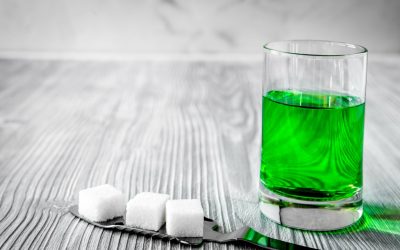B vitamins, particularly B1, B6, and B9, are crucial for brain health, immune function, and mood regulation. Foods like leafy greens (spinach, kale), whole grains (oats, quinoa), and lean protein sources (poultry, fish) are excellent choices to ensure adequate intake of these vital nutrients. The vitamin B complex is a group of water-soluble vitamins that are essential for various bodily functions. They help convert food into energy, support brain health, and aid in the production of red blood cells. Alcohol abuse can deplete the body’s stores of these vitamins, making their replenishment crucial for individuals in recovery.
Superfoods for Your Alcohol Detox Diet
Eating a balanced diet helps keep your blood sugar steady, which gives you more energy and mood balance, which are important for facing the difficulties of recovery. Carbohydrates provide energy, proteins support tissue repair, and healthy fats contribute to overall health and satiety. Focusing on complex carbohydrates (whole grains, fruits, vegetables) over simple sugars is crucial for stable blood sugar levels and preventing cravings. Nuts and seeds are nutritional powerhouses that provide a range of health benefits during alcohol detoxification. Incorporating these into your diet can help support brain function, stabilize mood, and improve overall well-being.
Incorporating Variety in Diet

Fatigue and low energy are common alcohol withdrawal symptoms, but complex carbs help fight and reverse these symptoms. Maintaining a healthy diet and lifestyle throughout the recovery process is crucial for long-term success. Continued support from healthcare professionals, family, friends, and support groups can help individuals stay on track and achieve their recovery goals.
Ways on How to Avoid Drug Addiction
By understanding the importance of alcohol detoxification, individuals can take the first step towards overcoming their addiction and embarking on a path to recovery. It is important to remember that detoxification is just the beginning of the journey, and ongoing support and treatment are essential for long-term sobriety. Alcohol detox is the first stage of any alcohol addiction treatment, and must be completed before patients can move on to overcoming the root causes of their addiction with counseling and therapy. Alcohol detox treatments not only cleanse your body what is alcoholism of alcohol and help you overcome dependency, but allow you get back on track with a healthier lifestyle.

In certain cases, medication may be prescribed to help manage withdrawal symptoms and reduce discomfort. Medications such best foods for recovering alcoholics as benzodiazepines, anticonvulsants, or other medications targeting specific symptoms may be used under medical supervision to alleviate withdrawal effects. Medication-assisted detoxification should always be done under the guidance of healthcare professionals. Water helps flush toxins from your body in the form of waste, and can help offset fluids lost during withdrawal in the form of sweating, vomiting, and diarrhea.
Alcohol has no nutritional value, and instead dehydrates you and can lead to malnourishment. This double effect shows why it is important to be aware of and deal with these issues for your physical and mental health. Excessive alcohol consumption inhibits the body’s ability to absorb nutrients, dramatically influences the diet of the heavy drinker and can result in severe malnutrition. A healthy diet, complete with supplements recommended by your doctor, can go a long way toward restoring normal body function. Citrus fruits are known for their high vitamin C content, which plays a crucial role in alcohol detoxification.
Individualized Dietary Plans
- Vitamin C is another vital nutrient that helps combat oxidative stress caused by alcohol consumption and aids in boosting the immune system.
- Recovering from alcohol dependency is an intricate process, heavily influenced by diet.
- Consuming sufficient levels of protein can help alleviate common withdrawal symptoms such as nausea and fatigue, facilitating a smoother transition to sobriety.
- Knowing what to eat to detox from alcohol can make a significant difference in how you feel during this challenging time.
- Opting for nutrient-dense snacks can help curb cravings and provide sustained energy without leading to overconsumption.
Also, carbs help to raise insulin levels, which in turn helps get more amino acids to the brain. This, in turn, helps alleviate some of the issues related to withdrawal symptoms and can even help prevent relapse. Nuts are a great filling and healthy snack and can directly help in the overall recovery process from addiction. While all nuts are good, certain nuts benefit certain parts of the body more than others.
- These top five foods that aid in alcohol recovery are foods to prioritize as you return to physical and mental wellness.
- When you drink alcohol, it releases a burst of dopamine, serotonin, and other “feel good” chemicals in your brain.
- Excessive caffeine may also interfere with your ability to stay hydrated, which is crucial during withdrawal.
- Whole wheat bread is packed with magnesium and fiber, which are essential for properly satisfying hunger cues and ensuring steady energy levels throughout the day.
Berries like blueberries, strawberries, and raspberries are antioxidant powerhouses. They are rich in vitamins, fiber, and phytochemicals that support detoxification and overall health. Whole grains like quinoa, brown rice, and oats are rich in fiber, B vitamins, and minerals. If you or a loved one is struggling with alcohol addiction, don’t wait to seek help. Contact Futures Recovery Healthcare today to learn more about our luxury detox programs and how we can support your recovery journey. Our private chefs prepare gourmet meals using fresh, organic ingredients, making healthy eating an enjoyable part of the recovery process.
Magnesium and zinc are minerals that alcohol-dependent individuals are often deficient in; they are essential for numerous enzymatic reactions and overall nervous system health. Omega-3 fatty acids, found in foods like fish, also contribute to nervous system repair and cognitive function. It’s important to note that while supplements can support detoxification, they are not a substitute for medical treatment. Individuals should consult healthcare https://smallbusinessbrazilianexpo.com/22-best-drinking-games-for-an-unforgettably-good/ professionals before starting any new supplement regimen, especially during alcohol recovery. The detox process not only removes alcohol and toxins from the body but also prepares individuals for further therapeutic interventions.
